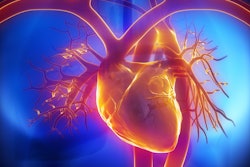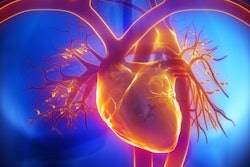
The British Heart Foundation (BHF) has shared its seven observations from this week's European Society of Cardiology (ESC) Congress in Barcelona, Spain, including the potential for artificial intelligence (AI) to improve heart attack care in women.
Their seven discoveries at the meeting included the following:
- Blood-pressure medication is effective at any time of day: The Treatment in Morning versus Evening (TIME) study, which followed over 20,000 people for over five years, found no difference in outcomes for patients who took their blood-pressure medication in the morning or the evening.
- Statins aren't the cause of most reported muscle pain: A meta-analysis from the University of Oxford assessed 23 large studies that involved nearly 155,000 people. They found that statins weren't the cause of muscle pain in over 90% of people experiencing symptoms.
- AI could help to narrow the heart attack gender gap: An AI algorithm developed by the University of Edinburgh was able to rule out a heart attack with 99.5% accuracy. What's more, it produced 83.7% accuracy in identifying patients who would benefit from staying in hospital for further tests and who were ultimately diagnosed with a heart attack.
- A remote alert system could help reduce hospitalizations for heart failure: Researchers from Manchester University NHS Foundation Trust and the University of Manchester reported that a remote alert system for heart failure could dramatically reduce hospitalizations and improve patient care with minimal staffing time.
- A drug combination could delay the need for surgery in people with Marfan syndrome: A group from the University of Oxford concluded that a combination of beta blockers and angiotensin receptor blockers can slow down how quickly the aorta grows and delays the need for surgery.
- Just 10 minutes of walking a day could help individuals over the age of 85 to live longer: After investigating links between activity levels and the risk of death in 7,000 people aged 85 and over, researchers from South Korea found that those who walked for at least one hour every week had a significantly lower chance of dying compared with people who did no walking.
- Combining several drugs into a "polypill" could prevent further heart attacks and strokes: In a trial involving around 2,500 people who had a heart attack less than six months earlier, a group of patients who received a "polypill" containing aspirin, atorvastatin, and ramipril had fewer deaths from heart and circulatory conditions. They also had fewer heart attacks in the follow-up period and were more likely to continue taking their medication than those in a group who took all three drugs separately.
The BHF's full observations can be found on their website.



















